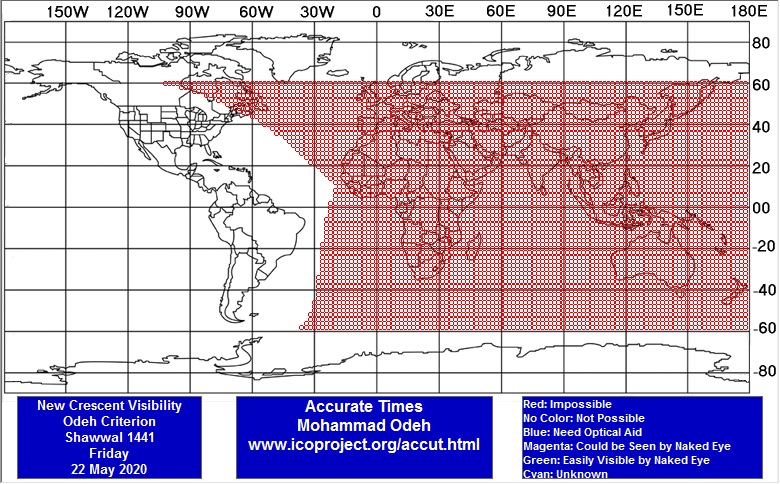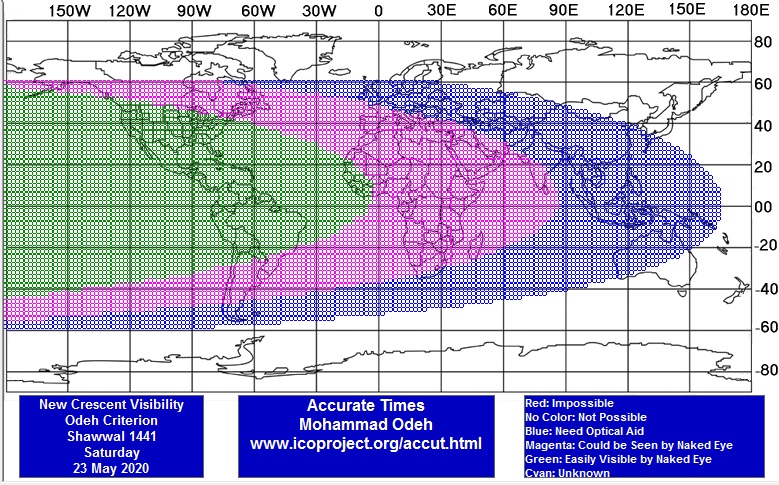The Juristic Office of the Institution of His Eminence, the late Religious Authority, Sayyid Muhammad Hussein Fadlullah (ra), issued a statement concerning the beginning of the month of Shawal 1441 H.(Eid Al-fitr).
Following is the text of the statement:
The new crescent (central conjunction) for the month of Shawal1441H will be born on Friday 22-5-2020 at 17:39GMT that is, 20:39Beirut time.

As it is noticed in the above figure, sighting is impossible on Friday night in all parts of the world. Thus, Saturday 23-5 2020 is the day that completes the blessed month of Ramadan, and Sunday the 24th is the first day of the month of Shawal, for thirty days would have passed since the end of the month of Ramadan.

The crescent on Saturday night could be easily seen by the naked eye in the regions colored green. And provided the weather is clear and the viewer is experienced in the regions colored magenta. It can also be seen by the armed eye in the regions colored navy blue. Thus, Sunday the 24th of May 2020 is the first of Shawwal, according to the jurisprudential opinion of His Eminence, the late Religious Authority, Sayyid Muhammad Hussein Fadlullah (ra), who deems it enough to sight the crescent, in any region with which we share a part of the night whether with the naked or armed eye to establish the beginning of the month in our region. There is no difference in this respect between the western regions and the eastern regions of the globe as long as a part of the night is shared.
Many happy returns on all Muslims and people. And we pray that Allah, The Most Exalted, would return it after the pandemic of the Covid-19 has ended, and that He would accept our deeds and bestow on us His rewards and blessings. He is All-hearing and Responsive.
source:bayynat
 Ijtihad Network Being Wise and Faithful Muslim in the Contemporary World
Ijtihad Network Being Wise and Faithful Muslim in the Contemporary World
